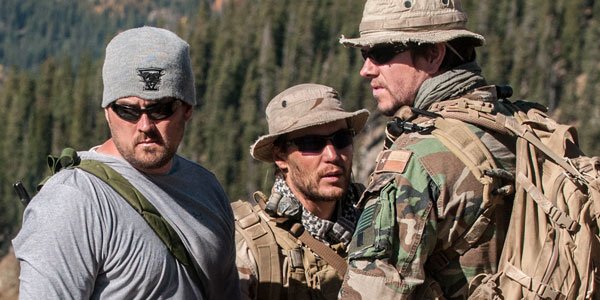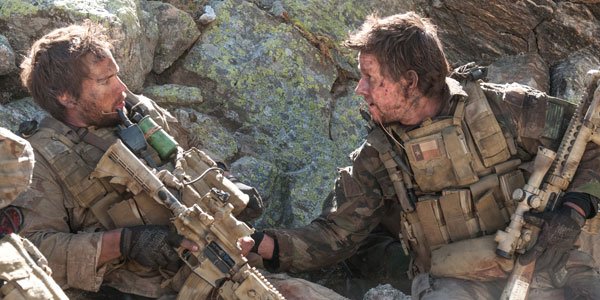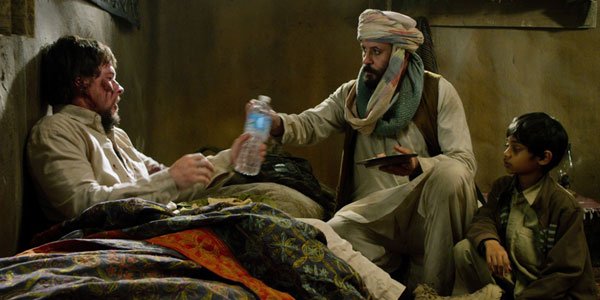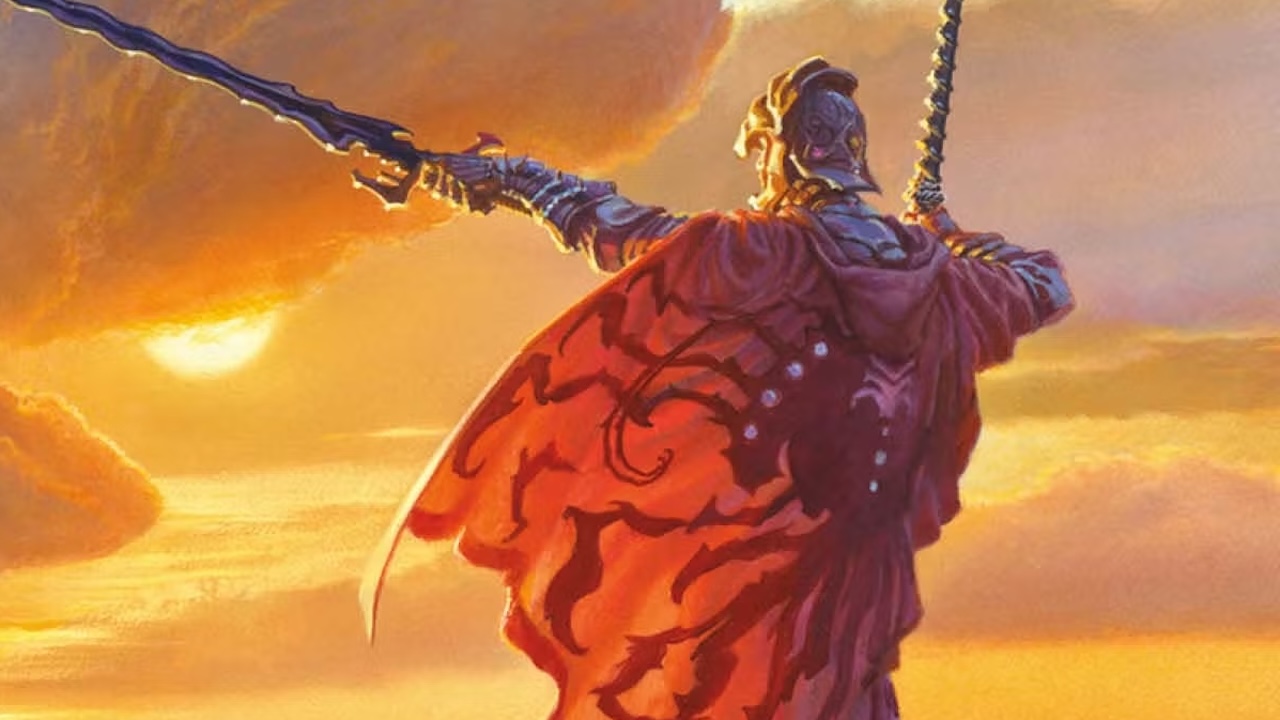Lone Survivor's Marcus Luttrell On What It's Like Making A Movie About The Worst Day Of Your Life

Your Daily Blend of Entertainment News
You are now subscribed
Your newsletter sign-up was successful
Sitting down for Lone Survivor, the biopic of former SEAL Team 10 frogman Marcus Luttrell, I expected to be confronted with the horrors of war and the sacrifice soldiers like the Navy SEALs are forced to make for country, which I was. I did not expect to see a nod to Anchorman in the form of a signed picture of Ron Burgundy or a new team member dedicatedly acting out the big dance scene from Napoleon Dynamite. But when I spoke with Luttrell over the phone about the upcoming film, he assured me that these details were as true to his story as the brutal gunfire and battle damage I saw rained upon his onscreen doppelganger Mark Wahlberg, and the rest of the team.
Writer-director Peter Berg adapted Lone Survivor from Luttrell's best-selling memoir of the same name, which detailed the failed mission "Operation Red Wings." The mission's purpose was to capture or kill an infamous Taliban leader, but in the end it resulted in the biggest single loss of life for Naval Special Warfare forces since World War II. As the title suggests, there was only one survivor of this bloody conflict on an Afghani mountain on June 28th, 2005. His name is Marcus Luttrell.
He's a retired SEAL with a Navy Cross. He's a proud Texan, who repeatedly addressed me as "ma'am" during our conversation. He's a big fan of movies, though isn't the kind of guy to get star struck. And perhaps most importantly, he felt it was up to him to pay tribute to his fallen brothers by telling their story. He served as a consultant on Lone Survivor. And according to one of the film's stars, Emile Hirsch, he was on set nearly every day. Below, he shares what it was like making the worst day in his life into a movie, why he feels movies matter, and why he believes his late friends would have enjoyed Pain & Gain.
What kind of responsibility did being the lone survivor give you in telling this story?
The ultimate responsibility: to get it right. Since I was the only one to make it off the mountain, to make sure that nothing was exaggerated or fabricated and that what happened [actually] happened, and to honor their memory the best way that I possibly could.
After the book came out, was it important for you to see this made into a movie?
No ma'am. No, absolutely not. The book itself was a big deal. I was really apprehensive about that. That’s not who I am. I was a Navy SEAL, not a writer. So, when the Navy came calling and said, "Hey, we’re going to declassify this op and put it out"--because there are so many rumors and stories floating around about what had happened up there, that I’d be just sitting around and a family member would call me and say, "Hey you didn’t tell me about this. Why am I hearing this?" And I would say, "I don’t have any idea what you’re talking about. That’s not how that went down. You can’t be listening to everything that you hear."
Your Daily Blend of Entertainment News
So, for you, the book was setting the record straight?
Yes, ma'am.
Did you have any say in casting?
I kind of left that up to Peter. It was one of those things where he’s the pro at making movies. I mean, I like to watch movies, but as far as how they’re made. I’m sure everybody who watches movies thinks they could make one, that they could act in one. I’m kind of a realist. I was like, "You’re the resident expert on this. If you’ve got a question on Navy SEAL stuff, come to me."
But you deferred to him?
Right, and I think he did an absolutely fantastic job of picking the cast. It turned out very well. Everyone worked as a cohesive unit, from the time we started training to the time the film wrapped. I mean, you could see them grow together as team. It was actually an honor to watch that happen.

In this movie, they present the SEAL team as being fans of movies. There’s references to Anchorman's Ron Burgundy and to Napoleon Dynamite, which I found surprising. Was your group really into movies?
When you’re out in the middle of nowhere, for 6-8 months, and all you have to do is sleep, eat, work out, operate, and watch movies. So, the good thing about--and I’ve actually told the actors and anybody that has anything to do with movies--we thank them for what they do because it breaks the reality of war. We go in and we had a hard day or a bad night or whatever it is and you go in and put a movie on and it takes your mind away from, "Hey, I’m in the middle of nowhere in the desert and in an hour I have to go get into something."
So that was true to your experience, that you guys were actually that into Napoleon Dynamite and Anchorman?
Oh yes, m’am. The quotes would fly rampant, during the day, at night, on ops. I mean, it was, yes, m’am. It’s like that. That was true to form…As Navy SEALs, we’re kind of, when you watch a movie about something, when you’re the guy who does it in real life, you’re like ok, alright, that can’t happen. It’s like a pilot watching Top Gun or a boxer watching a movie on fighting or something like that. Do you understand where I’m coming with that?
Yeah, totally. So, was that important to you in making the movie that things were accurate to your experience?
Absolutely. We blanketed the set with team guys to make sure it was as authentic as possible. There was nobody swinging from wires. The falls, you see. There’s no dummies falling down a mountain. It’s real stuntmen and stuff like that.
Before working on this film, how familiar were you with the works of Peter Berg?
Oh, I mean, I had seen his films, of course. I didn’t know any actors or anything like that. I never went to Hollywood. Frogmen aren't really, "Hey, can I have your autograph," kind of guys, or anything like that. We're not blown away by seeing somebody. In our world, you’re just a human being, just like everybody else. That’s the job you do, and it’s the job we do, and they’re really good at it, and I enjoy watching you work and that’s kind of how it is.
What was it like watching Mark Wahlberg act out this really intense moment in your life?
I enjoyed watching him work as a professional, as an actor. He’s a good guy. I was glad that he decided to be a part of this and he put everything he had into it, and for that I’m very grateful.
Have you seen Pain & Gain?
Yes, ma'am. Actually the other day I saw it, in the hotel.
What did you think of Pain & Gain?
Mark has a unique ability to adapt real life people or situations into movies. I would guess, I can’t think of any other actor who has done that more that he has, taking real life people and putting them on film. I didn’t know the story behind Pain & Gain. I think I was pretty young back then. When did that happen? Was that the ‘80s or the ‘90s?
Something like that. The part that really gets to me in that movie, I love that movie, is the part that, it says, "This is still a true story." You know what I mean? It’s bonkers, that movie.
Right, yeah, exactly. Have you seen The Ghost in the Darkness? Right in the beginning of the movie, when it’s talking about it and it goes, "Everything you see in this movie, no matter how unbelievable it is, happened." And when you see something like that, after the movie you’re just like, there are two man-eating lions or whatnot and you go online and you try to research it and you find out it really did happen and the lions are on display at the Chicago museum, two maneless, male lions attacked together.
It never happens and they killed all these people and you know, it’s just, movies like that, when you watch it and you’re just like, "No that couldn’t happen!" And then you read it and you’re like, "Wow! Wow stuff like that really does happen in real life." Pain & Gain, I thought him and Dwayne (Johnson) and was it Tony (Shalhoub), it was entertaining to me. I like watching it. One of the things about, the reasons we watch a lot of movies in the Seal teams obviously, is to take our mind off of stuff, and to get those great one-liners so you can, you know, throw those out in the perfect situation. Pain & Gain has a lot of those.
Oh, absolutely.
When they were talking about how he said--I can’t remember the line of it. I’ve only seen it once, but they’re driving down the road, and they’d already kidnapped Tony's character and (Mark says), "He said, 'He wanted a body like mine,' or something like that. I was just laughing. It’s totally what a bodybuilder would say, a trainer would say.
And he’s so offended that that was the lie.
Right! Such an insult. Like, you’re a trainer. Why wouldn’t he want to have a body like yours?

It seems like you do watch a lot of movies. So, I have a question about the beginning of this movie. I noticed that with Dietz and Murphy and Axel, they kind of set something up, like they give you this idea of their character. We get the picture of Ron Burgundy, we get a chat with a family member, some discussion of a possibly pregnant wife, but your character does really get that kind of intro. We see him sleeping next to a disassembled gun, but there’s nothing else. Can you tell us about that decision?
Truth be told, m’am, I wasn’t on set when that went down and I think the way they portrayed that was more attention to the guys that has perished, that had died on the mountain. When you see them, when Taylor is walking down, obviously the Texas flag on the wall, door opens up and I’m sitting there with the pistol, that’s true to form. The Texas flag patch on my uniform, I always wore that, stuff like that, but the movie was more of a tribute to the guys who had died on the mountain than to me. Why waste that time on me when you could focus in on the guys who were really the sole purpose behind the film.
I can see that. That makes sense. Then, at the end of the film, we focus in a little on the culture of this Pashtun village, and this one man in particular who, I mean, you know, basically saved you. Can you tell us more about him?
Mohammed Gulab, yeah, he’s a great man. I mean, I owe him a blood debt. We’re still very, very close. He’s here in the States right now. I was with him the other day. He came to the premiere. He’s just a really honorable man
Is he visiting in the States or does he live here now?
No, visiting. He’s Afghani through and through. He’s just like I am with Texas. We can go somewhere else and stay for a couple of days, but after a while, you start to get that hole where you’re like I have to go back to the red dirt, you know?
That’s who you are. Absolutely. Well, what do you hope audiences take away from the movie, Lone Survivor?
Just the fact that it’s not a statement movie. It’s not supposed to be an in-your-face, "Hey, this is what’s going on, you need to pay attention kind of thing." That’s not it at all. It’s just basically a movie abut reality of war, of how things sometimes go down and that, how hard we can fight and how we stick together as a brotherhood and just how close a team can come together for each other in times of, basically the worst time of their life. And no matter what happens, we don’t leave each other and we don’t quit.
Lone Survivor is open in limited release. It expands to more theaters on January 10.
Staff writer at CinemaBlend.

